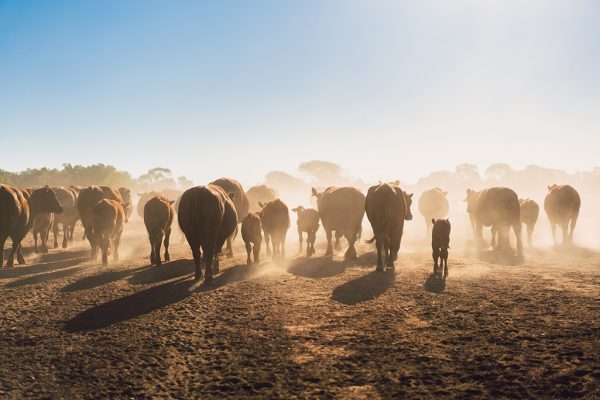Since I last wrote, the GasFields Commission Queensland has claimed to have solved the threats to the availability of public liability insurance for farmers.
Following moves last year by Insurance Australia Group (IAG) and its subsidiaries WFI and CGU to withdraw from insuring properties affected by coal seam gas activities or infrastructure, representatives of AgForce Queensland, the Insurance Council of Australia, the Australian Petroleum Production & Exploration Association (APPEA) and other organisations formed a working group that led to the GasFields Commission publishing an indemnity clause for inclusion in land access agreements between landholders and mining and gas companies, such as a Conduct and Compensation Agreements (CCAs).
As a result, IAG has indicated it will continue to offer policies to farmers who coexist with gas developments.
Regrettably however, the published indemnity clause has significant shortcomings. Landholders should heed the GasFields Commission’s warning that it “is not a one size fits all solution” and AgForce’s warning that “the recent agreement still hadn’t addressed all their concerns”.
Landholders should ask the following five questions before relying on the published clause.
1. Does it apply to me?
The GasFields Commission says the indemnity clause can be used “if required by the insurer and agreed by the landholder and proponent”.
The clause is not automatically added to existing agreements and is not a compulsory inclusion in new agreements.
Therefore, unless a landholder can convince a gas or mining company to revisit an existing agreement, the risk remains that an insurer could refuse to offer public liability cover for landholders who coexist with gas (or mining) projects.
Further, despite the involvement of gas industry body, APPEA, in the development of the clause, there is nothing obliging gas (or mining) companies to offer to include it in new agreements. It is left for landholders to negotiate.
2. What doesn’t it cover?
The focus of the new indemnity clause is the risk of third parties suing landholders over incidents (connected with the resource authority holder’s activities) that occur during the currency of the agreement in which the clause is included. The clause is not expressed to continue to apply once the agreement expires.
For example, if an accident occurs during a six-month exploration agreement, but by the time a legal claim materialises it is 12 months later, is the landholder exposed? Arguably, yes.
The clause leaves claims arising after expiry of the agreement and latent damage (such as subsidence or harm to underground water supplies) to be addressed separately.
In addition, the indemnity expressly excludes problems to the extent they are caused by the landholder (or the landholder’s family, employees, agents, contractors, subcontractors, licensees or other invitees) wilfully or “recklessly, foreseeing that there was a real and not remote chance of the relevant consequence ensuing”.
Perhaps most inexplicably, a mining or gas company’s liability under indemnity is expressed to be limited to a monetary amount, which the template suggests should be negotiated and completed in each case.
This is a trap for landholders. There is no logical reason for a cap on a resource authority holder’s responsibly for problems connected with its activities: the bigger the problem, the bigger the problem for which the resource company should accept responsibility.
In every case (except perhaps where the monetary compensation is “too good to refuse” and the landholder is therefore prepared to voluntarily accept the risk of large claims), the word “unlimited” should be inserted in clause 1.6(b) of the indemnity.
3. What am I being asked to give up in exchange?
The Queensland Government’s template CCA and others like it provide for landholders to accept the “agreement” in “full and final satisfaction of” (that is, in exchange for giving up) all rights to compensation under the resources legislation.
Some agreements go even further and propose that landholders also give up other general legal rights.
Given the limited scope of the newly published indemnity clause, landholders are at risk of inadvertently letting the tenement holder “off the hook” for responsibilities they would ordinarily have under the resources legislation and general legal principles if they accept the newly published indemnity clause in the place of much broader legal rights.
Landholders should therefore consider the indemnity clause as only “part of the puzzle” of a good CCA.

Butch Walker Photography
4. Will my insurer cover any residual liability?
Each time a policy is taken out or renewed, landholders who host gas or mining activities or infrastructure should specifically disclose the arrangement to their insurer and seek an assurance that the landholder is covered for associated claims (to the extent they are not covered by the indemnity clause).
In almost every case, public liability insurance policies will have exclusions for:
- wilful and reckless acts or omissions, leaving the risks of certain behaviour on the part of the landholder’s contractors, employees etc resting with the landholder in almost all scenarios (given those risks are also excluded from the scope of the indemnity clause); and
- liability arising because of a right given up under an agreement, leaving the landholder without protection where they have accepted a poor CCA in “full and final satisfaction” of their legal rights as discussed above.
5. How then do I protect my interests?
Mining and gas companies generally send well trained negotiators to present agreements to landholders. When told an agreement or clause is “standard”, landholders should question what “standard” means.
Rarely will it represent the best outcome for the landholder, despite any cash incentives offered by a mining or gas company to sign quickly.
The better approach is for landholders to pause and ask experts for necessary advice, knowing the mining or gas company is obliged by law to cover reasonable costs.
Thynne + Macartney specialises in looking after landholders, not mining and gas companies.





